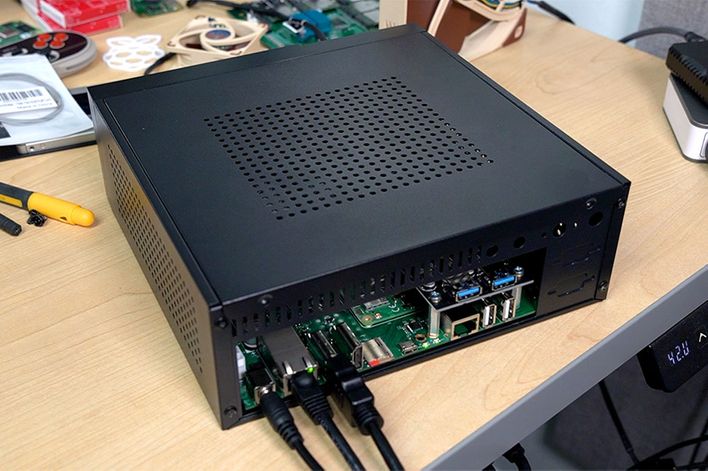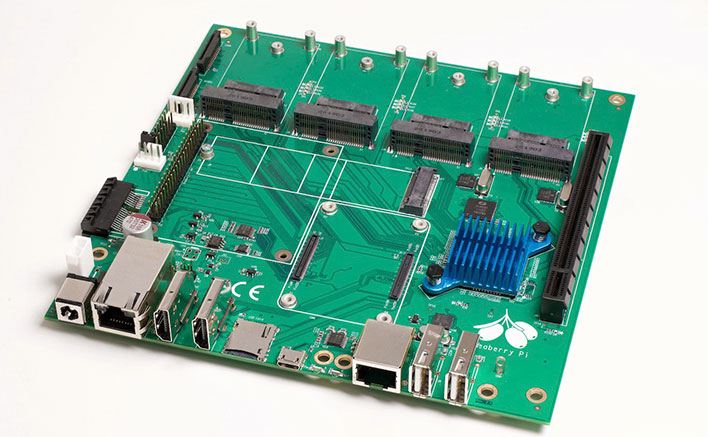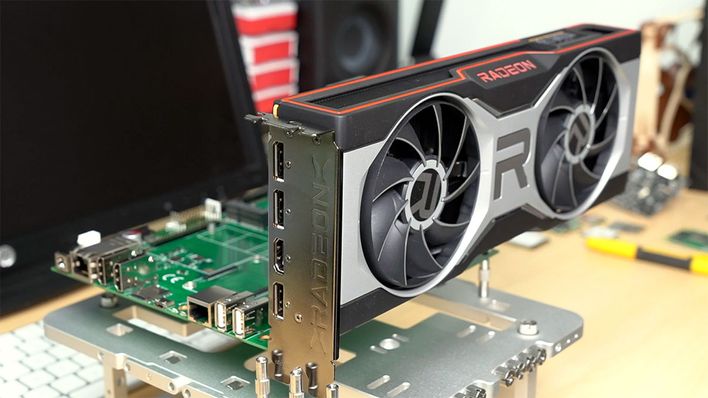Seaberry Mini-ITX Board Supercharges Raspberry Pi With 11 PCIe Slots For GPUs, Storage And IO

Alftel's Seaberry ITX is a carrier board, or a what most of us would call a motherboard for the Raspberry Pi 4 Compute Module, which last month saw a price hike. However, unlike most motherboards for the Pi, it adds eleven PCIe slots that allows for a wide variety of components to be added. For example, this board could allow for a full size GPU, several storage drives and additional I/O, for things like additional USB connectivity, networking etc. A full rundown of the specs are as follows.

- 1 M.2 M slot of NVMe SSDs
- 4 PCIe mini connectors
- 4 PCIe M.2 key E connectors (with dual PCIe and dual Reset lines support)
- 1 16X standard PCIe add-on card connector (x1 PCIe Lane functionality)
- 1 x1 PCIe side connector

This kind of expansion could be useful for anything from home automation and home security to application development and network monitoring. Blogger Jeff Gerrling had stated he used an Intel i350 dual-gigabit LAN card, a Dual-TPU coral M.2 accelerator, a KIOXIA XG6 M.2 NVMe SSD, a Compex WLE200NX 802.11N W-iFi Card, as well as an Intel AX210 WiFi 6 card and a dual SATA controller to expand his Pi setup. He also mentioned that it all worked and most had built-in drivers in the OS for the Raspberry Pi, with the NVMe and SATA SSD working immediately, without any custom drivers or rebuilding of the kernel.
The Intel AX 210 required a custom firmware and the Intel driver, but Google's Coral TPU cards didn't work for some reason. Jeff, however, also mentioned it being compatible with Radxa's CM2 and Pine64's SOQuartz. He also went on to test an AMD Radeon card and struggled with getting it to work, though it seems NVIDIA's drivers were problematic as well, with random lockups and kernel panic. He goes on to describe the product in more detail on his blog here
The Seaberry board's pricing weighs in at a significant $435 which is quite expensive relatively to the Pi, but is understandable, considering that costs of components in general are insane right now, and this is clearly a low-volume product.

